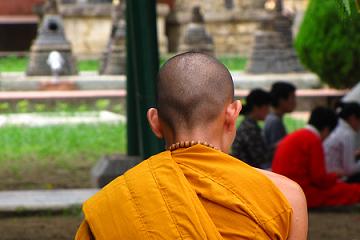THEY SIT like saffron pigeons on the stone ledge across from the Bodhi Tree.
If I clap my hands, will they scatter? Or like the good Theravadan monks that they are, will they log the bare fact of hearing in minds polished with the spirituality of perception?
